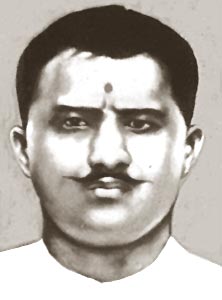Arrests and Martyrdom
The incident shook the very roots of British imperialism. It created a great upheaval in British India. The retribution was severe when more than 40 revolutionaries were arrested from all over India. As per official record of the British Government, a criminal conspiracy case was filed against 28 active members of HRA by the Special Magistrate Ainuddin after a long time. 21 persons were presented before Session Court of Special Judge A. Hamilton on 21 May 1926. Abbas Salim Khan, Banvari Lal Bhargava, Gyan Chattarji and Mohd.

 Ram Prasad Bismil participated in the Mainpuri Conspiracy of 1918, and the Kakori train robbery of 1925. Apart from being a freedom fighter, he was also a patriotic poet. Ram, Agyat and Bismil were known as his pen names which he used in Urdu and Hindi poetry. But, he became popular with the last name "Bismil" only.
Ram Prasad Bismil participated in the Mainpuri Conspiracy of 1918, and the Kakori train robbery of 1925. Apart from being a freedom fighter, he was also a patriotic poet. Ram, Agyat and Bismil were known as his pen names which he used in Urdu and Hindi poetry. But, he became popular with the last name "Bismil" only.